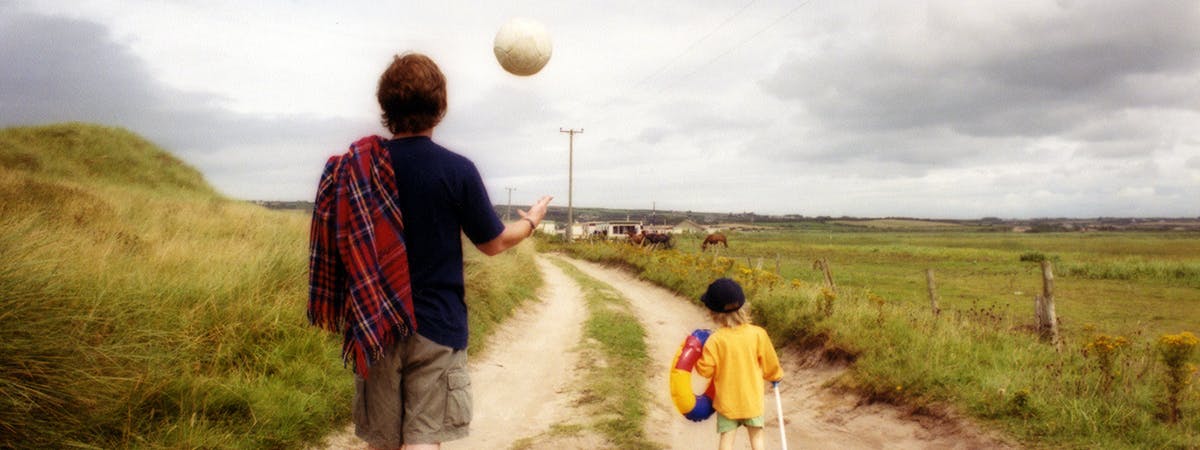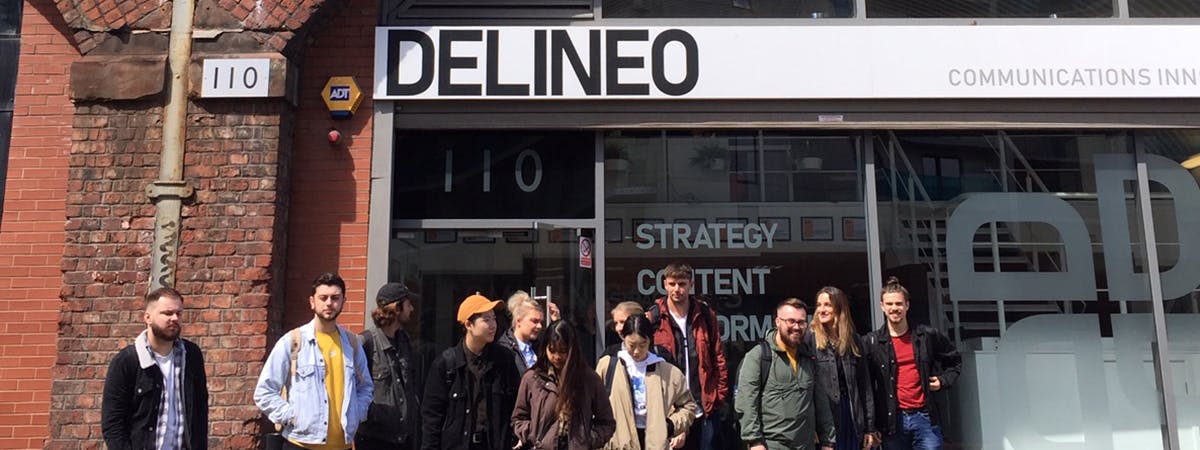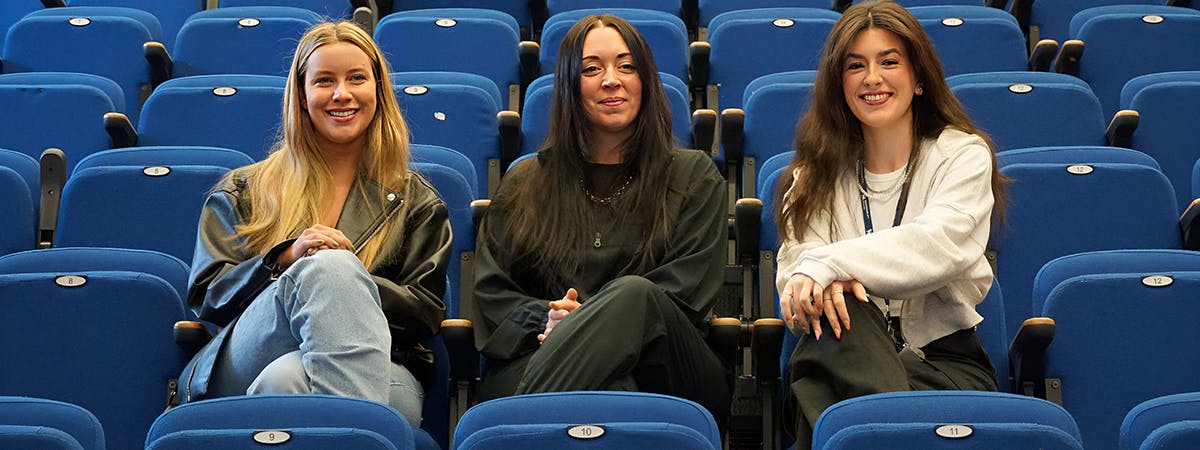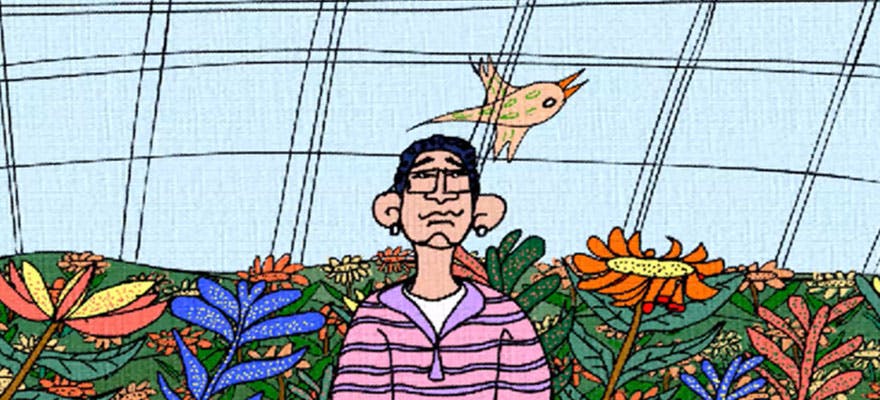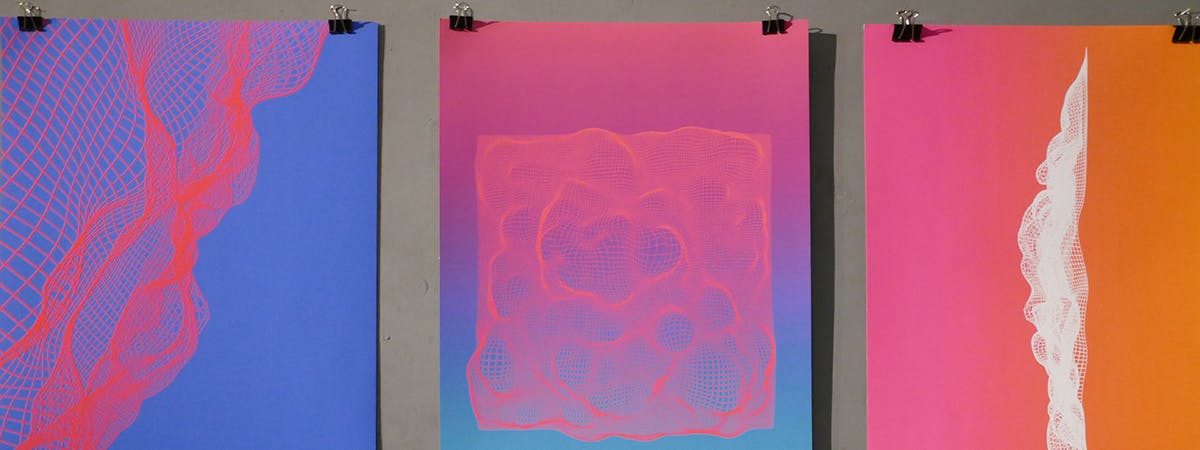Helen Wheeler is the Course Director of BA (Hons) Illustration. We caught up with her to find out more about why she thinks it's important to study a degree, why Birmingham is a good place to study and what students can do to help prepare for the course...
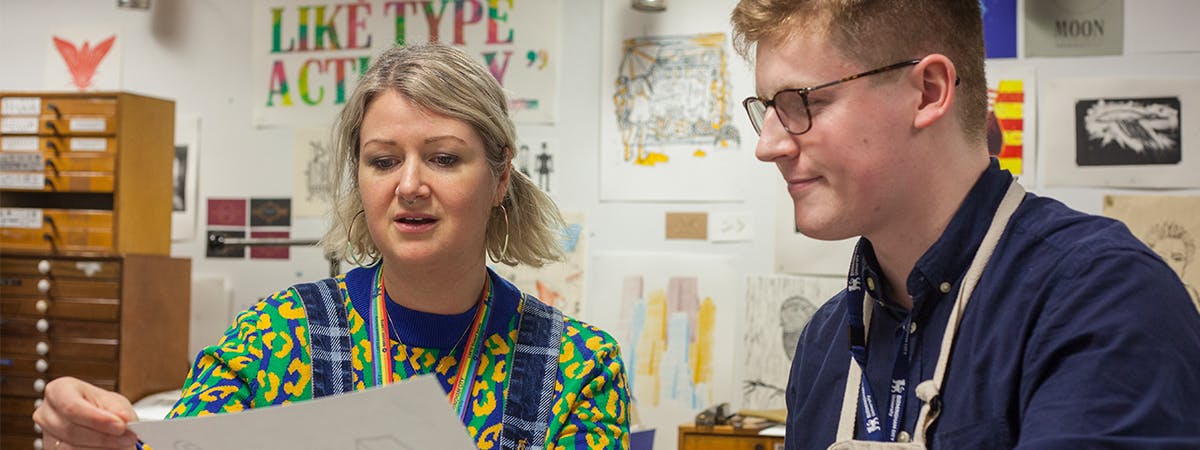
BA (Hons) Illustration Course Director
Could you tell us about your experience and how this feeds into your course?
I worked as a commercial, studio-based illustrator for 10 years before teaching at BCU. I then continued to work as a freelance illustrator alongside my teaching, and completed an MA in Narrative Illustration to expand my practice further. This range of experience has enabled me to create a course which prepares students for life after university. It is outward facing, we engage with industry throughout the course, and students have multiple opportunities to engage with external events across the city.
What is the philosophy of your course?
We are a creative community. Our course is commercial, collaborative, energetic and engaging. The illustration/ creative industries are rapidly changing - our goal is to set an active pace of learning as we prepare students for a future that is new, exciting and at the forefront of a wide range of career avenues.
We are fascinated by new ideas, technologies and issues that affect today's developing illustrators, and are committed to exploring unfamiliar territories throughout our three year degree and beyond. We actively seek out new methodologies and interdisciplinary connections to develop new illustrators and creatives with a toolbox for their future.
If you had to name one thing about your course that makes it distinct, what would it be?
It’s hard to choose just one!
We run a dynamic course, with an engaging mix of industry linked projects, collaborative practice, clubs such as Collage and Comic Club, and accessible workshops such as the print room. Underpinning all of this is a really positive studio environment, where students are encouraged to work hard, but also to enjoy the course as fully as possible throughout their three years with us. We aim to build confidence, provide key networking opportunities, offer fun trips, and meet student expectations. This course equips students with the skills they need in order to be a successful creative thinker and practitioner.
Why is Birmingham a good place to study?
Birmingham is a vibrant, multicultural city, but even more relevant to our students is the illustration and design scene which is bubbling under the surface. Through events and venues such as GLUG, Birmingham Design Festival, Flatpack Film Festival, Digbeth First Friday, the Ikon Gallery, Birmingham Museum and Art Gallery, and regular art markets and zine fairs, students have a huge range of opportunities to collaborate and get involved. We foster strong relationships with all of the above, providing invaluable experience and exposure for our students throughout their time on the course.
This degree provides you with opportunities, connections, and invaluable insight. It will open doors, and expose you to a wealth of knowledge from experienced members of academic staff. Access to excellent facilities, workshops, visiting speakers and skilled technicians, will prepare you to go confidently into working in industry. This is followed up with career support for an extra three years after finishing the course. Not to mention the lifelong friends you will make along the way!
Where will the students be based in their time here and what will their learning environment be?
The course is studio-based. We team teach, enabling energetic delivery of our modules, and helping students to get to know, and work alongside all staff members rather than just one tutor. Currently we have one large studio space on the top floor of the Parkside Building, which allows us to accommodate the whole year group on their allocated teaching day. This encourages a great sense of community from the outset of the course.
What can students do to help prepare them for the course?
We would encourage you to be aware of both the contemporary world of illustration, and the important illustrators of the past. What does illustration mean to you? How can it inform others? Illustration can be conceived in a multitude of mediums, and in response to a huge range of different prompts. Have an awareness of current affairs, and be prepared to tell us what inspires you and what you are passionate about.
What’s your favourite element about working at the School of Visual Communication?
Working alongside staff from a wide variety of backgrounds and disciplines. The collaborative ethos of the School of Visual Communication is what makes it distinct, and it is a vibrant and exciting area to be a part of.
